The 35 coolest CEOs in Silicon Valley right now
Joshua Reeves

Patrick Brown

Company: Impossible Foods
Founded by Brown, a former Stanford biochemistry professor, Impossible Foods has engineered a plant-based burger that could be the answer to reducing animal-product consumption, especially for self-identifying meat lovers. Bill Gates and UBS are among the investors who think it is the answer: Impossible Foods has raised $183 million for its food concepts. The burger — which contains wheat protein, potato protein, and coconut oil, among other ingredients — looks like a beef patty and cooks the way it would. Alphabet Chairman Eric Schmidt praised meatless meat products as a possible world-changing technology, but Alphabet and Impossible Foods never secured a deal that was in the works last summer. Instead, the company launched its meatless burger in select Whole Foods stores in May.
Doug Evans
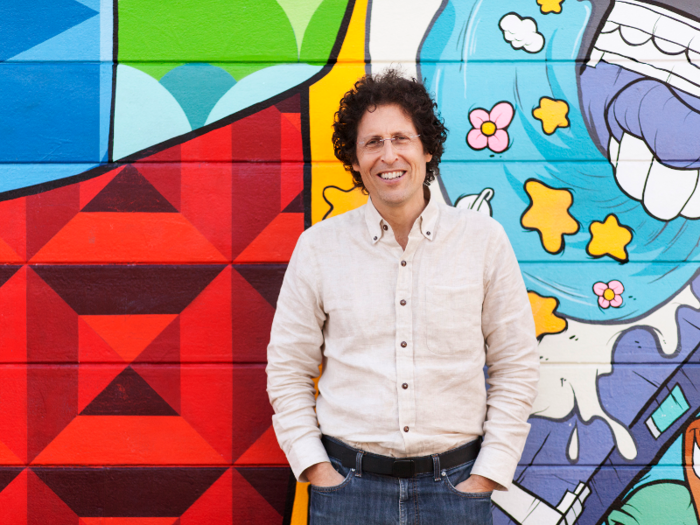
Company: Juicero
After years in stealth mode and roughly $120 million in funding, Juicero, the company behind the "Keurig for Juice," finally launched in March. The countertop cold-press juicer churns out 8 ounces of organic, nutrient-dense juices. A Juicero app lets users keep track of juice pack deliveries and nutritional information.
Evans has made it his mission to help people lead healthier lives, though Juicero's steep$699 price tag could deter potential customers. For now, only residents of California can purchase the product, but the company's site teases that it will soon be available nationwide.
Marissa Mayer

Company: Yahoo
Yahoo is struggling: revenue is down, investors are unhappy, and the company is bleeding money into acquisitions that aren't providing the rescue the company needs. In the midst of Yahoo's plight, many place the blame on Mayer for failing to turn things around in the four years since she took over.
But Mayer isn't going down without a fight. She has stayed firmly at the helm of the company, determined to either figure out how to get Yahoo out of the red or dismantle the ship.
Nat Friedman

Company: Xamarin
Xamarin, an open-source development company, allows programmers to write mobile apps that work on any popular operating system (iOS, Android, Windows) and then host them on their cloud of choice. When Xamarin, founded by Friedman, was getting its start in 2011, Microsoft was still considered an adversary by most open-source developers.
But no longer: Microsoft has begun to embrace open source as never before, and it bought Xamarin for a reported $400 million to $500 million in February. Xamarin's new mission is to encourage developers to use Microsoft's cloud instead of competitors' as the company works to grow its cloud business.
Peter Szulczewski

Company: Wish
Szulczewski has big plans for his e-commerce company. In 2015 he reportedly rejected multibillion-dollar acquisition inquiries from Amazon and Alibaba, and he projects Wish to sell $2 billion worth of goods this year. The company, which sells directly from merchants to consumers, spends big bucks on advertising, including an annual $100 million on Facebook ad space. Now people are wondering whether Wish could be the next Walmart of the online era.
Ev Williams
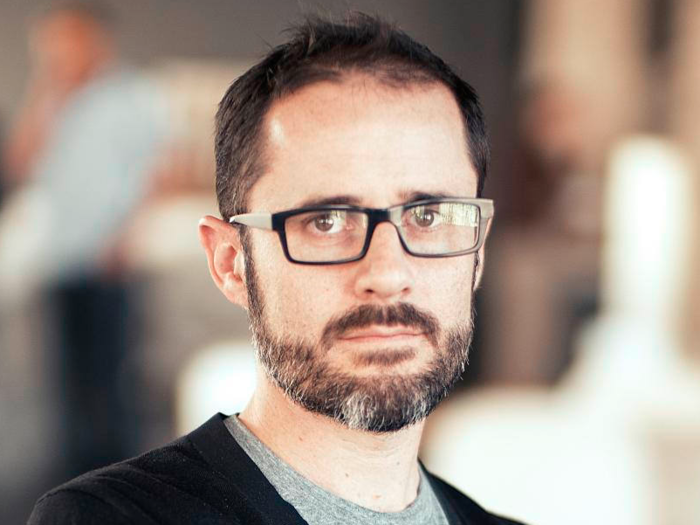
Companies: Medium and Obvious Ventures
Medium — the blogging platform used by tens of millions of people from budding writers to Valley mainstays to President Barack Obama — spent the year carving out some impressive real estate in the publishing sphere. This spring, the company created by Twitter cofounder and former CEO Ev Williams announced a $50 million round of funding, which followed a $57 million round in September.
In a post about the funding, the round's leading investor, Spark Capital, wrote that the "publishing tool, network, and ecosystem" was "solely focused on being the best place to read and write interesting stuff."
Andrew Dreskin
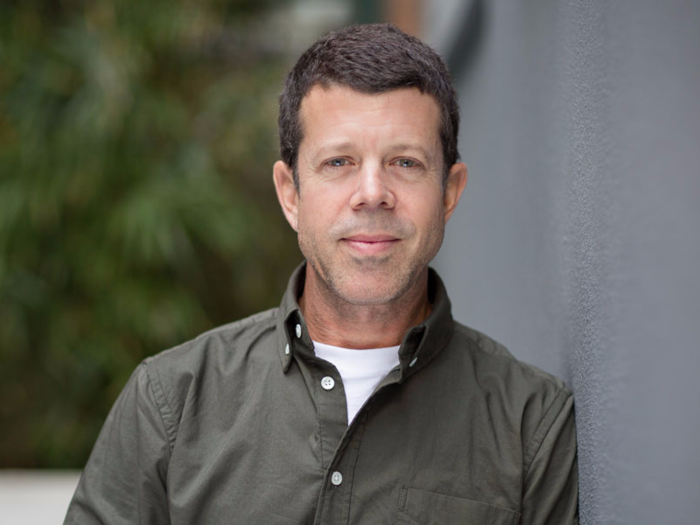
Company: Ticketfly
Pandora acquired the ticketing company Ticketfly for $450 million last year. Though Ticketfly is small compared with the ticketing giant Ticketmaster, the company is known for handling ticket sales for performances at smaller venues and the marketing and analytics for the venues it serves. Pandora plans to use the recent acquisition to build "the most effective marketplace for connecting music makers and fans."
George Hotz

Company: Comma.ai
Hotz is best known for his previous life as a hacker — he cracked the original iPhone in 2007 when he was 17, and he went on to break into the PlayStation 3 in 2010. Since then he has built a self-driving car from the comfort of his own garage and created Comma.ai — a kit that lets customers turn "dumb" cars into self-driving versions — based on that technology. It caught the attention of Andreessen Horowitz, which invested $3 million in the startup.
Greg Clark

Company: Symantec
Blue Coat, a security systems company, was on track to become the largest initial public offering in tech this year after the IPO market all but dried up. The company stopped short of going public, however, when Symantec offered to purchase it for about $4.65 billion in cash. Clark, the CEO at Blue Coat, then became Symantec's CEO.
Orion Hindawi
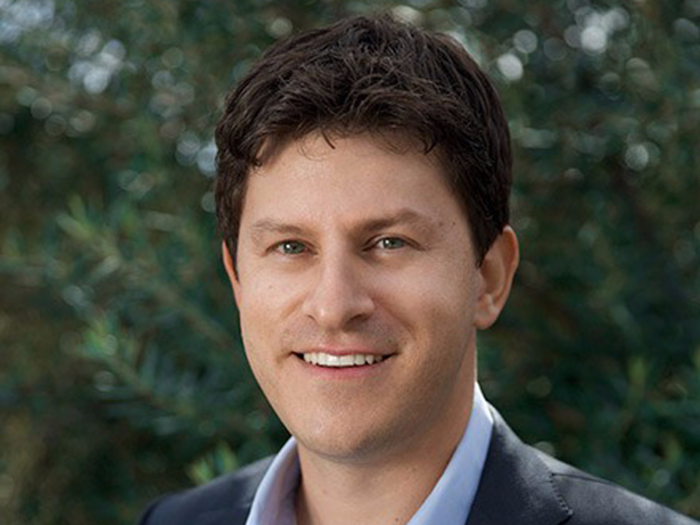
Company: Tanium
Hindawi attributes Tanium's success to its focus on building a quality product before fixating on growth. Now the hot security startup claims to be cash-flow positive and growing at more than 250% a year. After raising $52 million, the company raised another $120 million a mere five months later. In that time, Tanium's valuation doubled to $3.5 billion. The most impressive part? The company spends no money on sales and marketing, but rather it gets all its customers through word of mouth in the IT community.
Mike Cagney

Company: SoFi
The lending and wealth-management startup SoFi received a $1 billion funding round led by SoftBank last year that was the biggest financing round ever in the fintech industry. Since then, Cagney has been pursuing a $30 billion valuation and building up SoFi as a competitor with brick-and-mortar banks and online lending services. He also told Business Insider that the startup was considering an expansion into the world of life insurance.
Patrick Collison
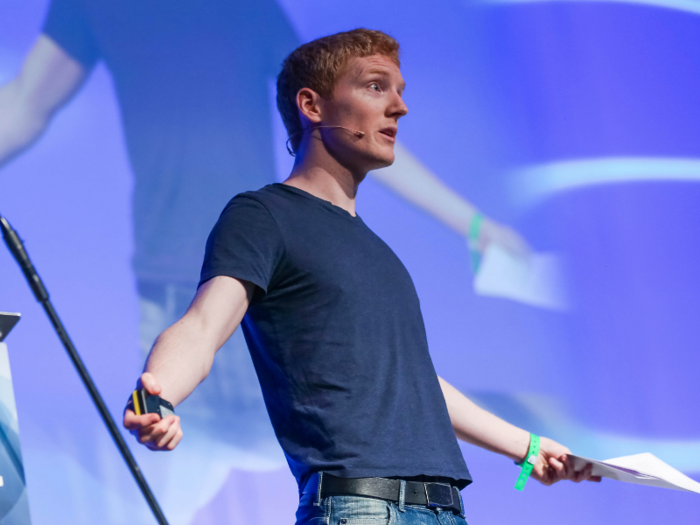
Company: Stripe
There's no slowing down the mobile-payment company Stripe. In July 2015 it received funding from a group of investors that included Visa and American Express. The $100 million round brought Stripe's valuation to $5 billion.
Stripe also launched two new products: Relay allows businesses to sell products on other apps, and Atlas helps international companies start businesses in the US. In March, Collison was among a group of American business leaders who joined President Barack Obama on a trip to Cuba, one of the countries Stripe launched in this year, to try to bridge the gap between the two countries.
Rob Mee

Company: Pivotal
Pivotal recently caught the attention of Ford, which led to a $253 million investment round for the software-building and consulting startup that counts BMW, Twitter, and Best Buy as customers. Microsoft also participated in the round, which was Mee's first as the newly appointed CEO. Together, Pivotal and Microsoft create an industry stronghold: They share 100 customers in the Fortune 500. Partnerships with Microsoft, Amazon, and Google's cloud computing services make Pivotal an easy-to-use service, even for legacy companies like Home Depot.
Brian Chesky

Company: Airbnb
Airbnb became one of the most valuable startups in the world in December after securing a massive $1.5 billion funding round, raising its valuation to $25.5 billion. But that's not enough for the billionaire founders' ambitious international expansion plan; they are now seeking a new round of funding that would raise Airbnb's valuation to $30 billion, triple what it was just two years ago. The room-renting company has listings in 191 countries and projects that 129 million nights will be booked by year's end.
There is just one thing stopping Airbnb from further growth: government roadblocks. In early June, for instance, the city of San Francisco backed Airbnb into a corner, requiring that the company list only properties that are registered with the city. Airbnb has sued the city to protect its renters who rely on their Airbnb income.
David Sacks
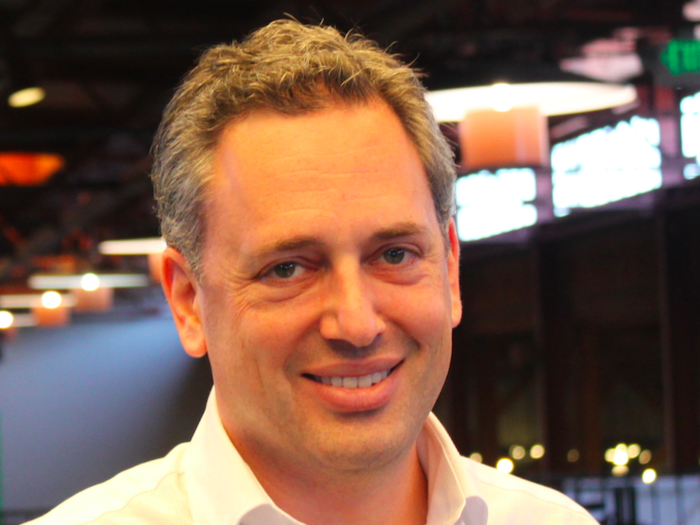
Company: Zenefits
After launching in 2013, the insurance startup Zenefits grew to 1,600 employees in two years. Soon after, Zenefits fell off track for its $100 million sales target, intracompany communication spiraled out of control, and its sales licensing procedures came under question. CEO Parker Conrad suddenly left, and Sacks, the COO, took over the top spot. He has made rapid and decisive changes to get the company back on track, including cutting jobs, asking employees who weren't committed to take a buyout, and cutting the value of the company by more than $2 billion as part of a deal with investors to avoid lawsuits.
Chuck Robbins
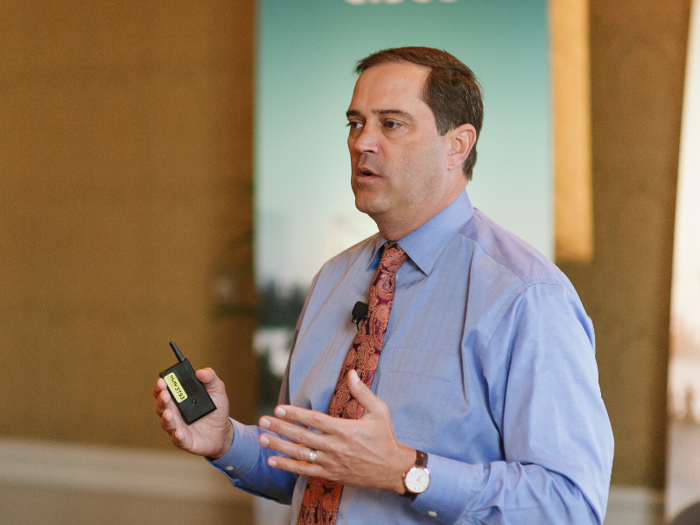
Company: Cisco
Upon his appointment as CEO, Robbins reorganized Cisco's leadership and restructured its engineering unit in a move to build closer relationships with the company's legendary lead engineers, who used to report to John Chambers, now the executive chairman. Robbins also brought in new hires to head the areas of Cisco he plans to focus and expand upon, like networking, cloud computing, security, and IOT and applications. As Microsoft challenges Cisco with its new networking software, it is as important as ever that Cisco's engineers focus on the company's own networking software, Nexus 9000.
Brendan Iribe

Company: Oculus VR
It's finally here! Four years after launching and two years after the $2 billion acquisition by Facebook, Oculus finally unleashed the Oculus Rift, its long-awaited virtual reality headset, to eager customers.
The product comes with a steep $600 price tag, but that didn't deter consumers from champing at the bit for it. Preorders opened in January and sold out almost immediately, leaving the company struggling to keep up. The headset also launched in retail stores this May, giving customers another chance to try to score one.
Logan Green
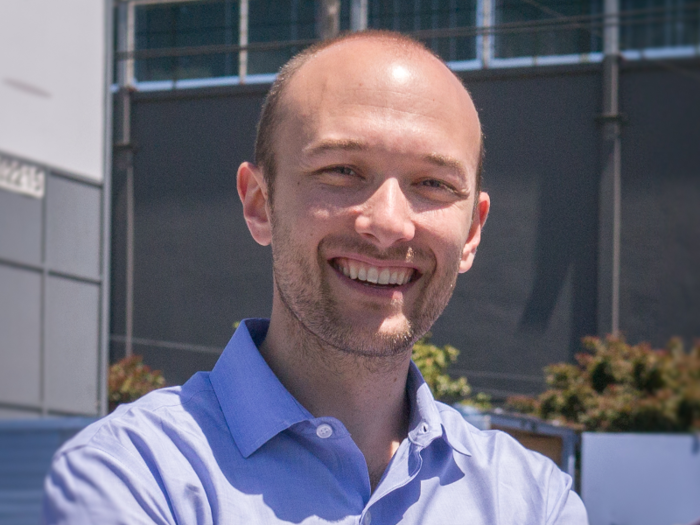
Company: Lyft
Along with fellow cofounder John Zimmer, Green is looking toward the future of transportation after raising $1 billion in the company's latest funding round in January, more than doubling its valuation to $5.5 billion from $2.5 billion in 2015.
The ride-hailing app announced in May that it was testing a service allowing passengers to schedule Lyft rides up to 24 hours in advance; the company's chief rival, Uber, announced a similar service only a few weeks later. In January, Lyft signed a partnership with General Motors, along with a $500 million investment, that aims to pursue the development of self-driving cars.
Jeff Lawson
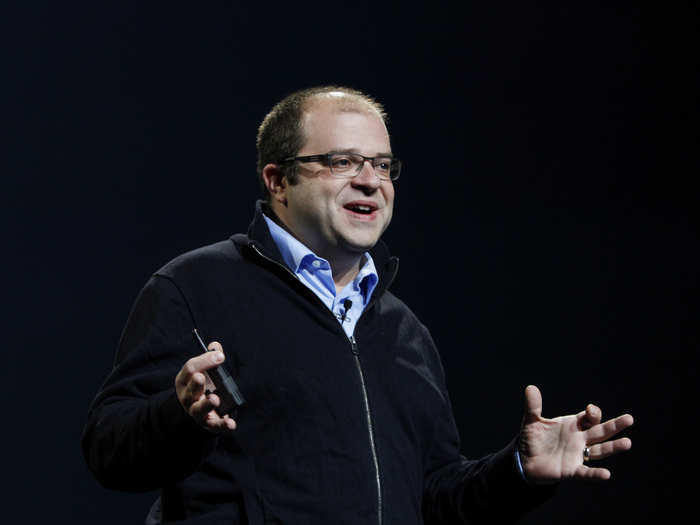
Company: Twilio
When the cloud software company Twilio filed for an initial public offering, it broke Silicon Valley's 2016 tech startup drought. Originally expected to be valued at $12 to $14 a share, it exceeded expectations by pricing at $15 a share and has been on a tear since.
A developer favorite — Lawson says 700,000 developers have used the software to date — Twilio integrates communications systems into existing apps like Uber, Lyft, and Airbnb. The behind-the-scenes software cuts costs and boosts efficiency for big tech ventures, allowing them to expand faster than if they had to build communications technologies on their own.
Stewart Butterfield

Company: Slack
People just can't get enough of the workplace messaging app Slack. At the end of March, the three-year-old company had its largest round of funding to date. Slack raised $200 million, bringing its estimated value to $3.8 billion. It is one of the fastest-growing business apps of all time, and most of that growth is organic. The company has done some TV spots and billboard campaigns, but it mostly relies on growth through word of mouth. It hired its first sales chief only in May after years of scaling on its own.
Kyle Vogt
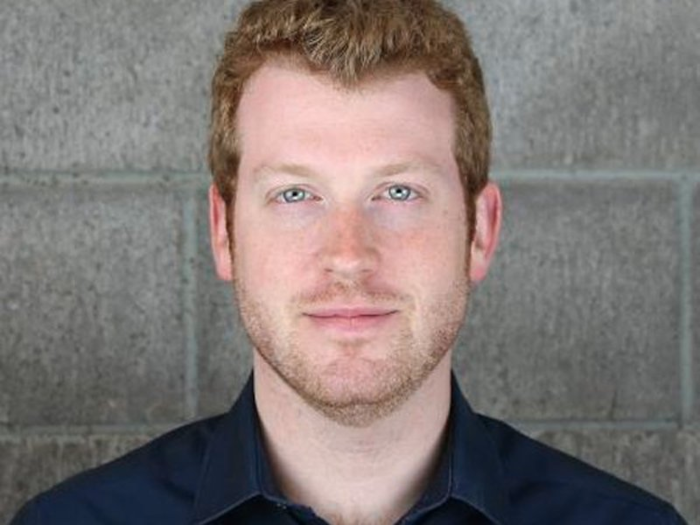
Company: Cruise
As tech companies and traditional car manufacturers vie for prevalence in the auto space, it feels like a race to see who will build the first mainstream self-driving car. And Vogt might be onto something big. His startup, Cruise, is developing technology that can retroactively transform any car into an autonomous one. His idea is so huge, in fact, that Vogt sold the startup to General Motors for more than $1 billion in March, making him the automaker's point person in Silicon Valley.
Reed Hastings

Company: Netflix
Netflix and its fearless leader Hastings have continued to dominate, impress, and delight this year. The ubiquitous entertainment-streaming service was one of the biggest risers in the tech industry in 2015 as evidenced by its 95-spot jump on this year's Fortune 500 list. With a plan for aggressive global expansion in motion and more than 600 hours of original content being added to its library throughout this year, Netflix expects to burn through another $1 billion in cash in 2016 to carry its growth efforts.
Netflix reached 81 million subscribers in April, but analysts estimate that the company will lose about 480,000 subscribers this year because of gradual price hikes, which are still estimated to pull in about $520 million in extra revenue.
Meg Whitman

Company: Hewlett Packard Enterprise
After years of sliding profits, troublesome acquisitions, and thousands of layoffs, Whitman decided to take drastic measures help boost Hewlett Packard back to its former glory. So she split the IT giant into two leaner, more focused ventures. Hewlett Packard Enterprise took charge of selling hardware, such as servers, while HP Inc. remained in control of printers and PCs.
Then in May, Whitman divided the company even further, spinning off HPE's business enterprise services and merging with Computer Sciences in hopes of — once again — becoming a serious competitor in the information technology space. In addition to overseeing the entire undertaking, Whitman serves as HPE's CEO and is on the board of all three new companies.
Dan Schulman
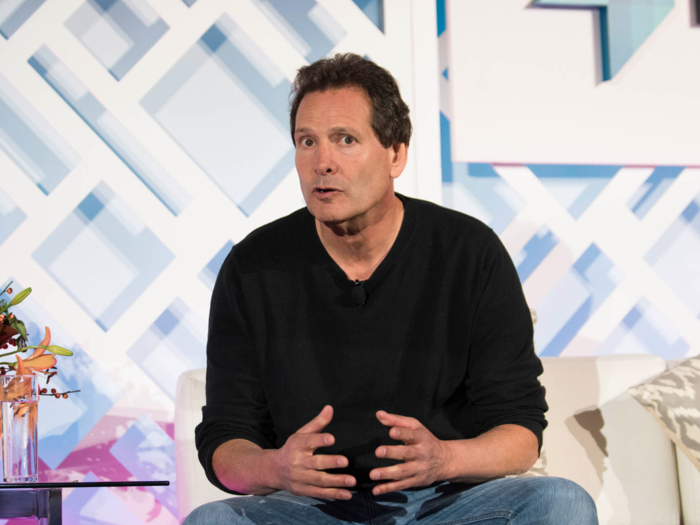
Company: PayPal
After a 13-year marriage, PayPal and eBay parted ways in 2015 to form two separate companies. Schulman has been CEO of the former ever since. Under Schulman, the PayPal-owned Venmo has become the year's most dominant peer-to-peer payment app, with 173 million active users in 2015. In April he announced that the company had its best quarterly earnings ever, despite an ongoing Federal Trade Commission investigation of the operation on suspicion of possible "deceptive or unfair practices."
Sundar Pichai
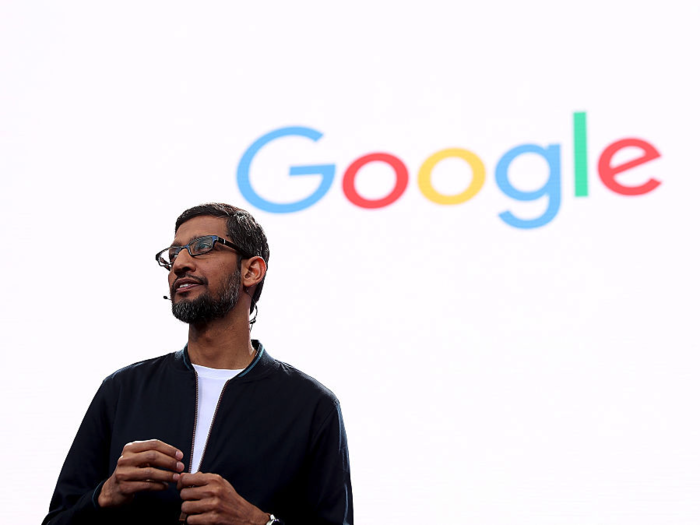
Company: Google
After Google restructured last year and formed Alphabet to oversee its growing cache of companies, Pichai took the reins as CEO of the new standalone subsidiary Google, which includes the company's search, YouTube, and Android businesses.
Pichai is focusing heavily on artificial intelligence, unveiling several new applications at the Google I/O event in May, including a messaging app that uses "messaging bots" to draft responses for users to make messaging easier and faster. Pichai has become one of the highest-paid CEOs in the tech world, making over $100 million in 2015.
Brian Slingerland
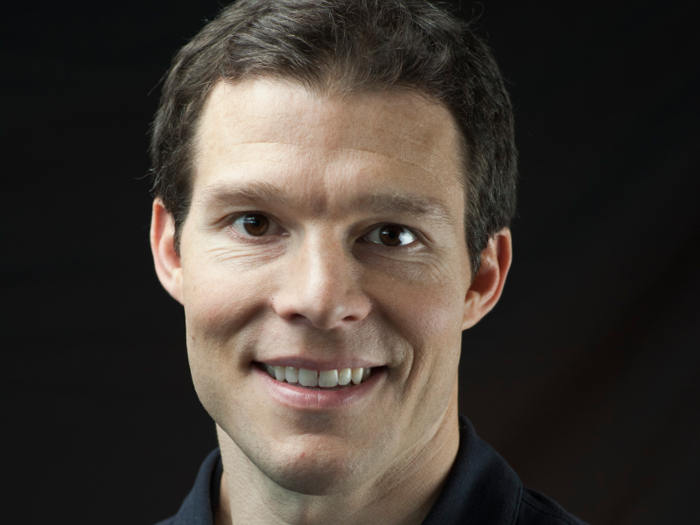
Company: Stemcentrx
Previously a Goldman Sachs vice president, Slingerland publicly launched Stemcentrx in September alongside former senior scientist at OncoMed Pharmaceuticals Scott Dylla and Daniel Reiner, a serial investor and former telecom executive. Their mission: to end cancer by targeting cancer-specific stem cells.
Less than a year later, the pharma giant AbbVie bought the biotech startup for $10.2 billion, when the company was valued at $5 billion, in one of the largest tech acquisitions ever. AbbVie showed special interest in Stemcentrx's lung-cancer-fighting drug Rova-T, which could grow the company's oncology business. AbbVie hopes to bring the drug to market by 2018.
Marc Benioff

Company: Salesforce
It might not be a shiny, consumer-facing product, but the cloud computing software company Salesforce is crushing it and remains one of the hottest tech companies in the world. Helmed by Benioff, the $50 billion business boasts a 22% compound annual growth rate and is expected to rake in more than $8 billion in revenue this year.
Benioff has become a model CEO not just for financial success but also for social involvement, standing up for gender equality, workplace diversity, and LGBT rights. He has openly criticized legislation that could be used to discriminate against LGBT workers and publicly pledged to guarantee equal pay for men and women.
.
Tim Cook

Company: Apple
In the past 12 months, Cook guided the tech giant through the launch of Apple Music, which garnered 6.5 million paid subscribers in the first month after the service's free-trial period; released the Apple TV 4, which can run third-party apps and access Siri; and introduced the iPad Pro, the company's largest tablet, boldly declaring the end of PCs with it.
Under Cook, Apple also recently invested $1 billion into Didi Chuxing, the Chinese ride-hailing service that is blowing Uber out of the water in China. The deal was Apple's first major investment since it bought Beats Electronics in 2014.
Jack Dorsey

As CEO of both Square and Twitter, Dorsey has his fingerprints all over Silicon Valley. In November he took the mobile payment company Square public, opening at $9 a share, lower than the $11 to $13 originally proposed. Though some outlets called it a flop, many entrepreneurs would kill for the company's $3 billion market capitalization and $1.3 billion in revenue.
And after returning to Twitter as interim CEO last July (and officially appointed CEO in October), Dorsey has spent the past year turning the struggling social network around by solidifying its mission and making product adjustments, including plans to incorporate more live video and crack down on the hateful abuse many users complain about.
Jeff Weiner
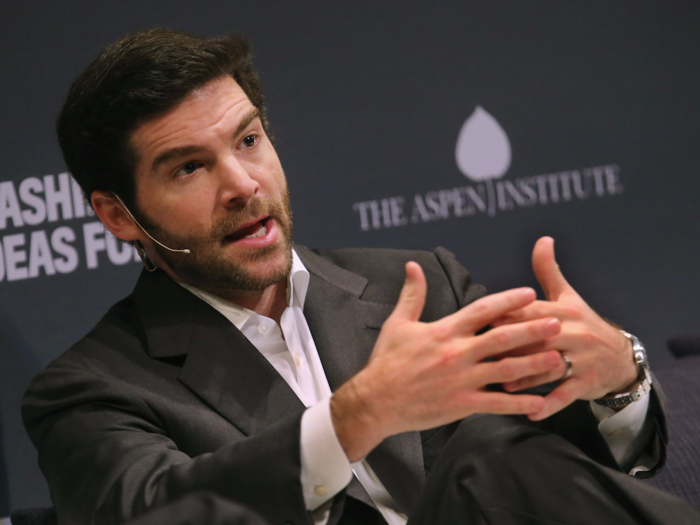
Company: LinkedIn
In March, Weiner gave his $14 million stock bonus back to LinkedIn employees after the company's stock tumbled 40% following the company's tepid February earnings report. Weiner hoped the move would help reinvigorate employees and improve morale.
By June, the company's stock-price woes had become moot. The tech world shook after Weiner and cofounder Reid Hoffman oversaw the professional social network's sale to Microsoft for a stunning $26.2 billion in cash. The deal marked Microsoft's largest acquisition ever, with the software giant paying a 50% premium to close the deal. Microsoft CEO Satya Nadella plans to eventually sync LinkedIn's network with Microsoft Office, ideally bolstering the overall user experience on both sides.
Elon Musk

Musk continues to be one of the world's most influential entrepreneurs — and preeminent multitaskers. Musk has his eyes set on dominating land and space through Tesla Motors and SpaceX, two of the hottest and most progressive companies of our generation. In April, Musk unveiled Tesla's mass-market Model 3, racking up 375,000 preorders in one month. The company is reportedly struggling to meet demand.
In June, Musk made a highly criticized all-stock offer for Tesla to acquire the floundering solar-energy company SolarCity; Musk owns 22% of the company and serves as its chairman. And if that weren't enough, he also envisioned a futuristic transportation system called the Hyperloop that would take people from LA to San Francisco in less than an hour. One company building a system based on that idea has now secured $80 million in series B financing in May and has begun testing its technology.
Travis Kalanick

Company: Uber
Worth $68 billion, the ride-hailing service Uber, helmed by Kalanick, holds steady in its place as the most valuable private tech company in the world. Under Kalanick's leadership, the startup also raised the largest round of venture capital ever, bringing in $3.5 billion from Saudi Arabia's Public Investment Fund in June.
Uber continues to expand and innovate, particularly through new services, such as UberEats, which brings meals to New York City customers, and UberRush, which helps businesses make deliveries. Kalanick leads the charge as Uber expands and conquers new markets, even as it faces fierce competition in China.
Larry Page

Company: Alphabet
Once just a search engine, Google has grown so tremendously that its cofounders felt it was time to restructure the company. In a letter last summer, Page announced the creation of Alphabet, a holding company that oversees Google and numerous other subsidiaries. As Alphabet's CEO, Page can focus on acquiring new technologies, fostering "moonshot" projects, and developing talent — his first move was promoting Google's Sundar Pichai from senior vice president to CEO.
In June, Bloomberg Businessweek reported that Page had personally acquired two companies working on creating a flying car, an investment unaffiliated with Alphabet.
Mark Zuckerberg

Company: Facebook
It has been a big year for Zuckerberg. At Facebook's annual F8 developers conference in April, he laid out a 10-year road map for Facebook, detailing short-term plans to ramp up video, search, and apps, such as Instagram and WhatsApp, in the next five years. The company's long-term focus will include bigger projects like drones, artificial intelligence, and virtual reality.
Zuckerberg also became a dad last fall, prompting him to pledge to give away 99% of his $50 billion fortune throughout his lifetime. He will do so primarily through a new organization he cofounded with his wife, Priscilla Chan, called the Chan Zuckerberg Initiative, which is aimed at making long-term investments in causes and organizations that will improve health, education, and equality.
Popular Right Now
Popular Keywords
- India’s wearables market decline
- Vivo V40 Pro vs OnePlus 12R
- Nothing Phone (2a) Plus vs OnePlus Nord 4
- Upcoming smartphones launching in August
- Nothing Phone (2a) review
- Current Location in Google
- Hide Whatsapp Messages
- Phone is hacked or not
- Whatsapp Deleted Messages
- Download photos from Whatsapp
- Instagram Messages
- How to lock facebook profile
- Android 14
- Unfollowed on Instagram
Advertisement